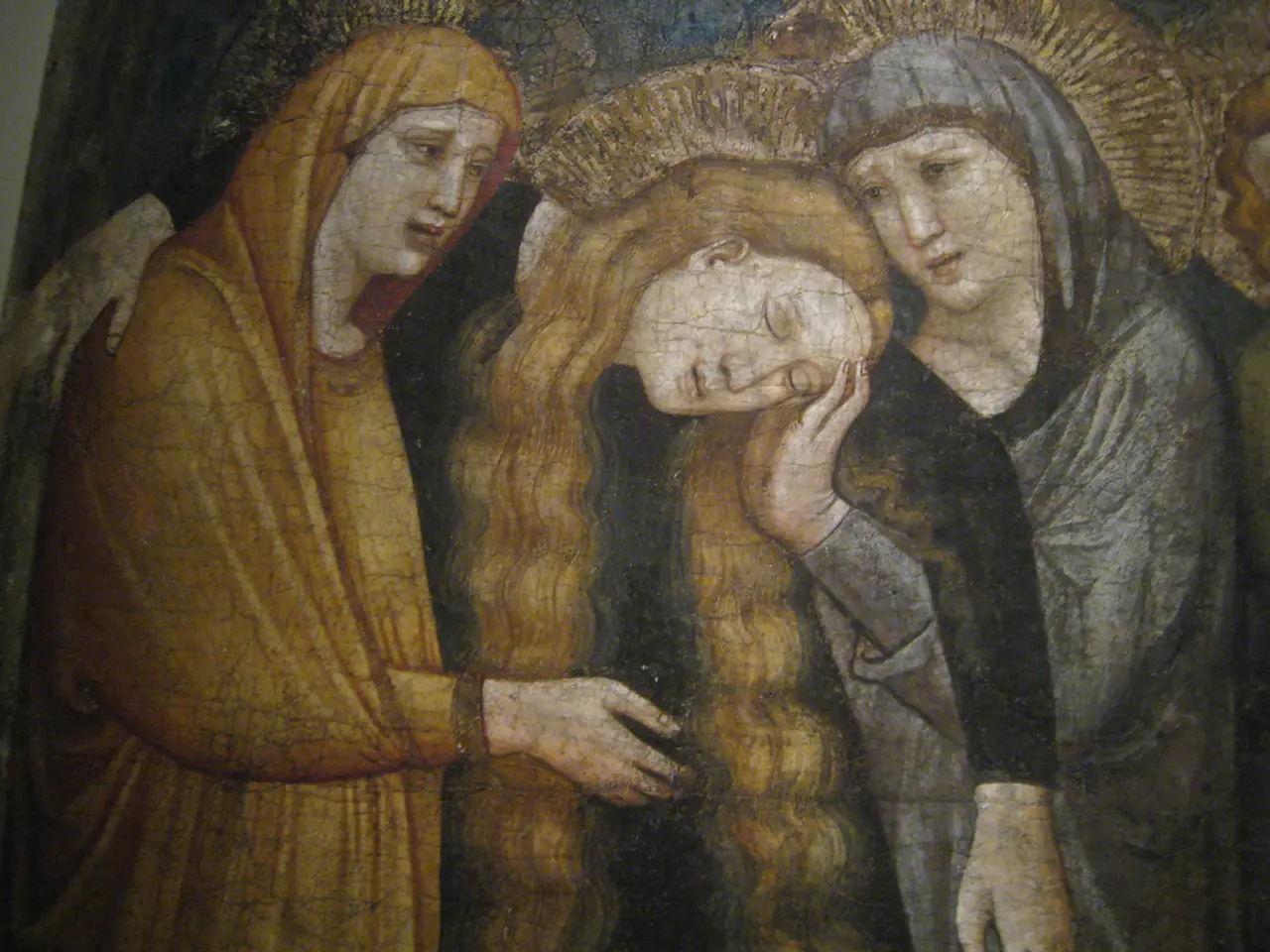Art Transforms into Money Laundering Through Maura Brewer
Maura Brewer, a Los Angeles-based artist and academic, has been delving into the complexities of money laundering and global finance with her latest project, "Leverage". The exhibition, recently on view at Timeshare Gallery in Los Angeles, presents a portrait of Daniel Sundheim, an investor, art collector, and MoMA trustee, through the lens of his art-backed loans.
Brewer's work explores the dynamics between debtors, creditors, and the unrepayable. She transforms the hidden, illicit financial flows into visual and conceptual art forms, making the opaque structures of money laundering—often involving multinational networks and secretive transfers of illicit money—tangible and comprehensible.
By bridging financial criminality and art, Brewer effectively highlights how money laundering operates as a form of systemic economic violence and exploitation. Her creative strategies and visual metaphors allow viewers to engage critically with topics typically obscured by legal and financial jargon or secrecy.
Brewer began working on the subject of money laundering in 2018, primarily focusing on the idea that art is a tool for money laundering. Her practice involves using public records, found footage, text messages, drawings, and animations. One of her notable works is the 2021 piece, Private Client Services, which demonstrates the process of money laundering, making profits from criminal activities difficult to trace or appear legal.
Brewer's work extends beyond traditional art forms. Her primary medium is video, creating essayistic compositions. In her 2024 video, Offshore, she guides artists navigating global finance, commenting on the link between art prices and income inequality. The video takes her to locations such as Ugland House in the Cayman Islands and the Geneva Freeport.
In addition to her work on money laundering, Brewer has taken an interest in the films of Jess Bond, a little-known director. Interestingly, Jess Bond is the daughter of Paul Manafort, Donald Trump's former campaign adviser, who was convicted of money laundering in 2019.
The world of money laundering and global finance is a far cry from the everyday existence of many people. If, according to Brewer, art and money are "dematerialized social constructs," it leaves unanswered questions about the lives of those for whom everyday existence remains material. This dichotomy was highlighted for Brewer when the Eaton Fire in January caused her to lose her apartment and most of her belongings, underscoring the detachment of money and art from physical objects.
Brewer's work serves as a critique and exposure of the hidden economic systems that shape contemporary global economies and power relations. Through her art, she invites viewers to question and engage with these complex issues, using humor to highlight the absurdity of financial machinations and their effects on artists' lives.
Maura Brewer's latest project, "Leverage," displayed at Timeshare Gallery, showcases the art collection and financial dealings of Daniel Sundheim, using art-backed loans to create an exhibition that delves into the complexities of money laundering. The artist employs various mediums such as video, drawings, and animations to transform these opaque structures of illicit finance into tangible and comprehensible forms.
The artist's work, Private Client Services, highlights how art can serve as a tool for money laundering by demonstrating the process of making profits from criminal activities difficult to trace or appear legal. Maura Brewer's practice involves the use of public records, found footage, and text messages to create her art installations.
Moving beyond traditional art forms, Brewer's primary medium is video, with her 2024 piece, Offshore, offering commentary on the link between art prices and income inequality while guiding artists navigating global finance. The video takes her to locations like Ugland House in the Cayman Islands and the Geneva Freeport.
Brewer's work extends to commentary on the films of Jess Bond, a little-known director, whose father, Paul Manafort, was Donald Trump's former campaign adviser and was convicted of money laundering in 2019.
The loss of Maura Brewer's apartment and belongings in the Eaton Fire served as a stark reminder of the detachment between wealth, art, and the material world. This loss underscores the artist's critique of hidden economic systems that shape contemporary global economies, power relations, and the lives of artists.




